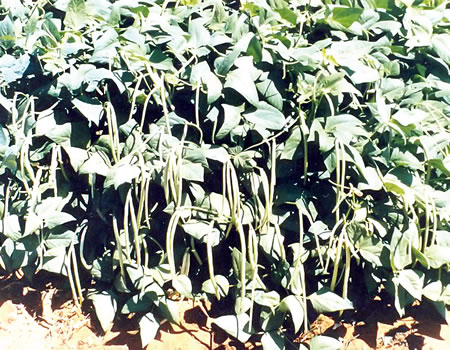This is just as the Principle Investigator of the PBR cowpea, Professor Mohammed Ishiyaku said the adoption of the crop will save Nigeria a total of N16 billion spent on purchasing chemicals to control pests.
Addressing journalists in Kano, the coordinating agency for agricultural research in Nigeria, the Agricultural Research Council of Nigeria (ARCN) said after many years of research, the council was proud to present to Nigerians the first home-grown genetically modified crop in the country which has passed all necessary scientific tests and posed no danger to human or the environment.
The Executive Secretary, ARCN Prof. Ambrose Voh said in the last ten years, the council had developed acceptable technologies that have reinforced the nation’s quest for self sufficiency in food production.
“As the coordinating agency for the over 15 agricultural research institutes in Nigeria, we have identified modern biotechnology as one scientific tool which potentials can help improve crop and animal production and we have done this with all sense of responsibilities bearing in mind both national and international protocols that guide the deployment of genetic modification, “ he said.
Professor Voh who was represented by Mr Yarama Ndirpaya, ARCN Director of Partnerships and Linkages added that in spite of the research advancements in crop and animal improvement carried out by various research institutes, the council’s attention has been drawn to malicious publication alleging that the Cowpea research at the Institute of Agricultural Research, Ahmadu Bello University, Zaria was targeted at harming Nigerians.
“This is not true and unfounded. Those behind this publication are bent on destroying the agricultural gains of the current government and bent on ruining the economy of the country aground for selfish gains. No product of our research under the supervision of the council and the Federal Ministry of Agriculture will constitute or be harmful to the people of Nigeria.
Prof Muhammadu Ishiyaku, a Plant Breeder and the Principal investigator of the PBR Cowpea project at the IAR said the research community in Nigeria had over the years produced a catalogue of improved varieties of crops to enhance their nutritional value and better the lives of farmers.
He said the decision to venture into genetic modification in cowpea breeding was as a result of pest infestation that has over the years made cowpea farming unattractive as farmers get less for their efforts and even have their lives exposed to dangers due to chemical spread to keep the pest abay.
“In the course of spreading farmers, a lot of lives have been lost as a result of improper and poor handling of chemical by farmers but the Bt cowpea does not require that volume of spread,” he added.
Prof. Ishiyaku said that the Bt cowpea was subjected to series of test to proof their efficacy and results of over six years of experiments showed the crop is not harmful and does not cause any disease.
He explained that the conventional cowpea allows about 6 to 8 times spray of chemicals to control the Pod Borer, but the Genetically Modified Cowpea allows just about 2 to 3 times spray of chemicals.
He, however, said result from the PBR cowpea research has a four times yield advantage as compared to their conventional counterparts and has the potentials of saving the country over N16 billion annually from purchase of chemicals and N48 billion on increase yield.






